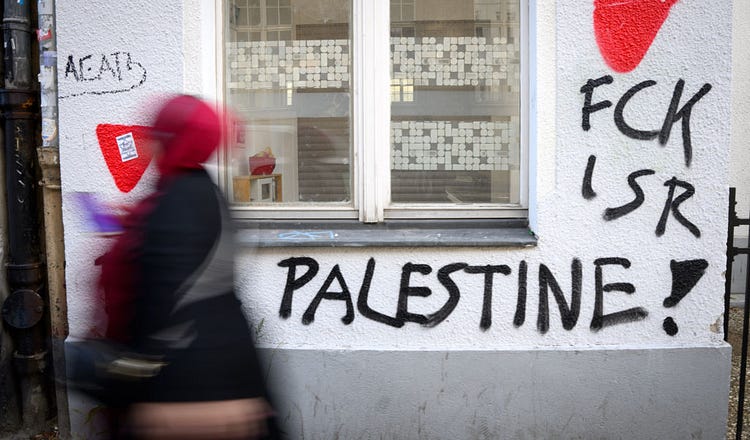
BERLIN — Before the Nazis came to power, 160,000 Jews lived in Berlin. They were vastly overrepresented in the arts and sciences, in medicine and law. Today, the community has around 8,000 members. There are no Nobel laureates, like Albert Einstein or Paul Ehrlich, the physician who invented the first antibiotic in 1909, among them.
But today’s Jews are apparently not invisible enough. There were 1,270 antisemitic incidents in 2023, the majority after October 7.
In reaction to this surging violence, Berlin’s police chief, Barbara Slowik, issued a warning not to the criminals, but to the Jews.
“There are parts of Berlin where I would advise people wearing a kippah, or who are openly gay or lesbian, to be more alert,” she said. “In certain districts there is a majority of Arabs who sympathize with terror groups and hate Jews,” the capital’s top cop added. The German antisemitism research outfit RIAS put it more brutally: “There are hardly any spaces where Jews could feel safe.”
Nor is this just a German problem. Look at London, Paris, and, most recently, Amsterdam, where well-organized Muslim assailants hunted down Israeli soccer fans who had come to cheer on Tel Aviv’s Maccabi team. Thirty of them were wounded, and Israel sent planes to bring home many of its soccer aficionados.
Frau Slowik surely meant well: Take care. Don’t provoke. Stay safe. But this is a perverse reversal of the role of police officers, who are supposed to protect vulnerable citizens. Surely the right thing for a police chief to do is to warn against those who would assault Jews and gays in her city. Instead she urged self-erasure to the would-be victims.
How did this become Berlin’s reality? You can’t answer that question without looking at the numbers.



